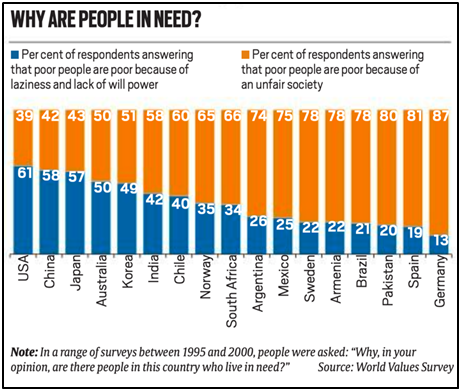What’s in Today’s Article?
- Background (Context)
- Examples of NYAY and PM-KISAN Programmes
- Arguments For/Against UBI
Background:
- President of a prominent political party told an election rally that if voted to power, his party would implement the NYAY scheme under which women would receive at least Rs 60,000-70,000” annually.
- Earlier, in 2018, the then government had rolled out the Pradhan Mantri Kisan Samman Nidhi (PM-KISAN) to provide income support of 6,000 per year in the three equal installments to all land holding farmer families.
- PM-KISAN was billed as the world’s largest Direct Benefit Transfer (DBT) scheme for farmers.
Are Schemes like NYAY and PM-KISAN the same as Universal Basic Income (UBI)?
- Under UBI, a government provides a basic income to every member of a population, from richest to the poorest, regardless of whether they are employed or not.
- However, the government withdraws all subsidies – from food to fertilizes to train tickets to medical bills.
- The idea is to give everyone a minimum income, cut the bureaucratic costs of running a large number of welfare programmes, and to tax everyone in a way that the UBI is funded.
- On the other hand, PM-KISAN and NYAY programmes are different.
- One, they are not accompanied by the removal of existing subsidies or benefits of other social welfare schemes for their beneficiaries.
- Two, the amount is much smaller than what can be considered a minimum or basic income needed to live a decent life.
- Three, these schemes are targeted at specific groups of Indians; they are not universal.
Why has UBI not been Implemented in India, and is not Popular elsewhere?

- In rich countries like Switzerland, which considered and dropped the idea, the UBI amount be quite a lot, even though the beneficiary population may be small.
- And in poorer countries, the amount would be smaller, but the population perhaps too large.
- Also, cutting existing subsidies and raising taxes to fund the UBI would be politically unpopular ideas almost everywhere.
- Arguments in favour of UBI:
- UBI reduces poverty and income inequality, and improves physical and mental health.
- UBI leads to positive job growth and lower school dropout rates.
- UBI guarantees income for non-working parents and caregivers, thus empowering important traditionally unpaid roles, especially for women.
- Arguments against UBI:
- UBI takes money from the poor and gives it to everyone, increasing poverty and depriving the poor of much needed targeted support.
- UBI is too expensive.
- UBI removes the incentive to work, adversely affecting the economy and leading to a labor and skills shortage.









